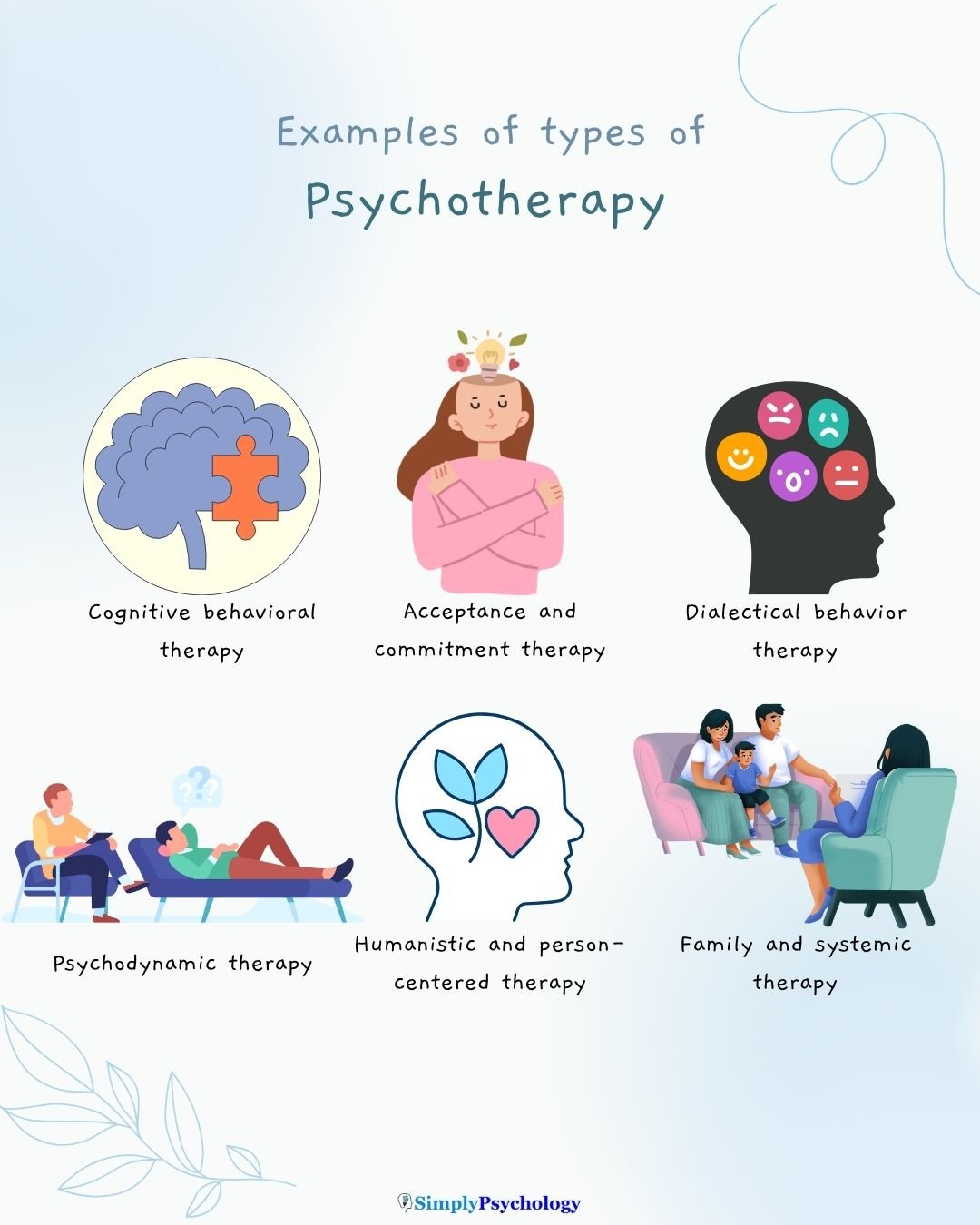How saint paul psychotherapy is essential for consistent well-being
Unlocking the Possible of Psychotherapy Services for Stress And Anxiety Administration and Coping Strategies
Psychotherapy uses valuable devices for managing stress and anxiety and boosting coping methods. By utilizing numerous healing methods, people can get understandings right into their emotional responses and establish much healthier means to navigate life's stress. This process not only aids in identifying stress factors however likewise fosters strength - st paul pyschotherapy. Comprehending just how these solutions can be customized to fulfill specific needs is crucial. The exploration of efficient methods reveals much deeper understandings into personal development and health
Comprehending Stress And Anxiety and Its Influence On Health
Stress, an omnipresent element of modern-day life, significantly affects specific well-being. It shows up in various types, from intense pressures, such as due dates, to persistent stress factors like financial worries or relationship problems. This mental and physical action can bring about significant health difficulties, consisting of anxiety, depression, and cardiovascular illness. People experiencing high stress and anxiety levels commonly find it challenging to keep healthy and balanced partnerships, concentrate on day-to-day jobs, or participate in self-care. Additionally, the body's tension response can disrupt sleep patterns and deteriorate the body immune system, further exacerbating health issues. Understanding the diverse nature of anxiety is crucial for people seeking to improve their well-being, as identifying its influence can encourage them to embrace healthier coping mechanisms and lifestyle changes.
The Role of Psychotherapy in Stress Monitoring
Psychotherapy functions as an important tool for individuals seeking to manage stress effectively. It gives an organized setting where customers can discover their emotions and ideas, enabling them to recognize stress factors and establish much healthier coping systems. With therapeutic discussion, individuals gain understanding into their behavioral patterns and discover to reframe negative attitude. This procedure fosters psychological policy and resilience, empowering customers to face obstacles with a well balanced point of view. In enhancement, Psychotherapy promotes self-awareness, helping people recognize their reactions and triggers to stress. By cultivating a helpful therapeutic relationship, professionals can assist clients towards personal development and enhanced wellness. therapist st paul. Inevitably, Psychotherapy gears up individuals with the skills needed to navigate stress factors, improving their total lifestyle
Common Healing Approaches for Handling Stress And Anxiety
Usual therapeutic methods for taking care of stress include Cognitive Behavioral Treatment, mindfulness-based strategies, and Solution-Focused Brief Therapy. Each technique offers special strategies for aiding people recognize and cope with stressors. Discovering these techniques can offer beneficial understandings into effective anxiety management techniques.
Cognitive Behavioral Therapy
Many people facing stress and anxiety have actually turned to Cognitive Behavioral Therapy (CBT) as an efficient approach for handling their feelings and ideas. CBT concentrates on determining and challenging adverse idea patterns, making it possible for people to reframe their assumptions of stressors. By understanding the connection in between thoughts, habits, and sensations, clients can develop healthier coping techniques. This healing method usually involves structured sessions where clients work collaboratively with therapists to set certain objectives and keep track of development. Techniques such as cognitive restructuring and behavior activation are used to foster durability. Research study suggests that CBT can bring about significant decreases in stress-related signs, making it a useful tool for those looking for to improve their emotional health and browse life's difficulties better.

Mindfulness-Based Strategies
While various restorative strategies exist for anxiety management, mindfulness-based strategies have actually acquired considerable focus for their performance in promoting present-moment awareness and emotional regulation. These strategies, rooted in ancient meditation techniques, urge individuals to concentrate on their thoughts, feelings, and physical experiences without judgment. By cultivating a non-reactive understanding, people can reduce stress and anxiety and stress and anxiety levels, causing improved coping systems. Mindfulness techniques, such as reflection, deep breathing, and mindful movement, aid clients create a greater feeling of self-awareness and durability. Study has shown that constant involvement in mindfulness can enhance psychological wellness and promote flexible stress and anxiety reactions. These methods have actually become important parts of modern Psychotherapy, supplying customers beneficial devices for guiding via life's obstacles.
Solution-Focused Quick Treatment
Structure on the mindfulness techniques that foster self-awareness and emotional guideline, Solution-Focused Brief Treatment (SFBT) offers an unique technique to handling tension. SFBT highlights a strengths-based point of view, motivating individuals to recognize and utilize their present sources and coping techniques. Instead of residence on troubles, this healing design focuses on services and future goals, promoting a positive outlook. Via short, ambitious sessions, clients are guided to imagine their desired end results and explore sensible steps to achieve them. This technique is specifically reliable for people encountering severe stress, as it cultivates quick gains in resilience and dealing capabilities. By stressing action and solutions, SFBT encourages customers to navigate stress with confidence and quality.
Developing Coping Approaches Via Treatment
In Psychotherapy, developing efficient coping strategies is necessary for anxiety monitoring. This process generally entails identifying stress and anxiety activates, using cognitive behavior methods, and including mindfulness and relaxation approaches. By dealing with these locations, individuals can improve their strength and better navigate demanding situations.
Recognizing Anxiety Activates
How can people successfully recognize he said their tension sets off? Recognizing tension activates is a vital step in handling stress and anxiety. Individuals can begin by preserving a stress and anxiety diary, documenting scenarios that prompt tension, in addition to associated emotions and physical responses. This reflective technique allows patterns to emerge, disclosing particular triggers. In addition, treatment can promote this identification process with assisted conversations where people discover their life experiences and emotional feedbacks. Specialists frequently motivate mindfulness strategies, aiding customers to end up being more knowledgeable about their immediate sensations and reactions. By pinpointing these triggers, people can acquire insight right into their stress and anxiety responses, laying the groundwork for developing efficient coping methods tailored to their unique experiences.
Cognitive Behavior Methods
Recognizing stress and anxiety triggers offers as a structure for creating efficient coping techniques, and cognitive behavioral techniques (CBT) play a noteworthy role in this process. CBT involves recognizing adverse idea patterns and changing them with more useful ones, which can substantially lower anxiety levels. By understanding just how thoughts affect habits and emotions, people can discover to challenge illogical beliefs and develop much healthier feedbacks to stress and anxiety. Strategies such as cognitive restructuring, analytical, and exposure therapy enable customers to confront stress factors in a regulated atmosphere. In addition, practicing self-monitoring aids clients identify their progression and problems. Eventually, CBT empowers people to cultivate durability and boost their coping skills, fostering an aggressive technique to handling tension efficiently.
Mindfulness and Leisure Techniques
While cognitive behavior methods focus on restructuring assumed patterns, mindfulness and relaxation methods supply complementary approaches for stress and anxiety administration. These strategies urge individuals to cultivate present-moment understanding, reducing stress and anxiety and advertising psychological regulation. Mindfulness methods, such as reflection and deep-breathing workouts, enable clients to observe their ideas and feelings without judgment, cultivating a feeling of calmness. In addition, leisure approaches, including dynamic muscle mass leisure and guided imagery, additional aid in easing physical tension connected with tension. Integrating these methods right into Psychotherapy can equip people to create strength and adaptability in challenging situations. By integrating mindfulness and relaxation right into their coping toolkit, customers enhance their general well-being and improve their capability to navigate stress properly.
Building Strength With Psychotherapy Techniques
Building durability via Psychotherapy strategies outfits people with the devices needed to browse life's obstacles effectively. Various approaches, such as cognitive-behavioral therapy (CBT), foster a deeper understanding of ideas and behaviors, equipping individuals to reframe unfavorable thinking patterns. Additionally, techniques like feeling regulation and anxiety administration assistance customers create dealing approaches that enhance emotional adaptability. Psychotherapy likewise encourages the farming of an encouraging social media, which acts as a buffer versus tension. By cultivating self-awareness and advertising adaptive abilities, individuals find out to approach adversity with self-confidence. Ultimately, these Psychotherapy methods not only aid in overcoming prompt stress factors however likewise lay a structure for long-lasting durability, making it possible for people to adapt to future obstacles with greater convenience and strength.
Locating the Right Therapist for Your Needs
Guiding the journey of strength usually includes moved here looking for expert assistance, making the choice of the appropriate therapist a significant step. People need to consider their specific requirements, consisting of the kind of anxiety they face and liked therapeutic methods. Looking into various therapists, analyzing their credentials, and understanding their specializeds can lead this decision. Individual compatibility is crucial; a empathetic and helpful partnership frequently improves healing outcomes. Furthermore, logistics such as cost, availability, and place play a crucial role in picking a specialist. Taking part in preliminary consultations internet can assist evaluate convenience degrees and therapeutic styles. Eventually, discovering the right therapist is a fundamental component of reliable stress administration and the development of dealing techniques, paving the method for improved mental health.
Frequently Asked Inquiries
How Much Time Does Psychotherapy Typically Require To Program Results for Tension Management?
Psychotherapy generally takes several weeks to a couple of months to reveal recognizable outcomes for tension management. Specific actions vary based on variables such as the intensity of stress and anxiety, healing technique, and the customer's involvement in the process.
Can Psychotherapy Be Efficient for Stress And Anxiety Connected to Details Life Events?

Exist Any Kind Of Adverse Effects of Psychotherapy for Stress Management?
Psychotherapy for stress and anxiety management may bring about short-lived pain, such as emotional distress or heightened anxiety throughout sessions. Nonetheless, these side impacts are typically temporary and can be part of the healing process.
:max_bytes(150000):strip_icc()/Counselor-or-psychotherapist-1067401-V1-504dd1dc730f4ccb8a4e3bed021c00bd-73d28250f555476e8a480a524b6b5409.gif)
Just How Much Does Psychotherapy for Tension Monitoring Generally Cost?
Psychotherapy for tension monitoring generally costs between $100 to $250 per session, depending upon the therapist's experience and location. Insurance coverage might cover some expenses, potentially decreasing out-of-pocket prices for clients looking for these solutions.
Is Online Treatment as Reliable as In-Person Psychotherapy for Tension?
Research indicates that online therapy can be as effective as in-person Psychotherapy for stress administration. Elements such as therapist connection, client engagement, and individual choices considerably influence the general efficiency of both techniques.
Psychotherapy offers as an essential device for people looking for to handle tension efficiently. saint paul psychotherapy. In enhancement, Psychotherapy promotes self-awareness, helping individuals recognize their triggers and reactions to anxiety. Identifying stress causes is a crucial step in managing stress and anxiety. Individuals can begin by keeping a stress and anxiety journal, recording circumstances that prompt anxiety, along with associated feelings and physical reactions. Psychotherapy can be effective for tension associated to specific life occasions, as it supplies individuals with dealing techniques and psychological assistance